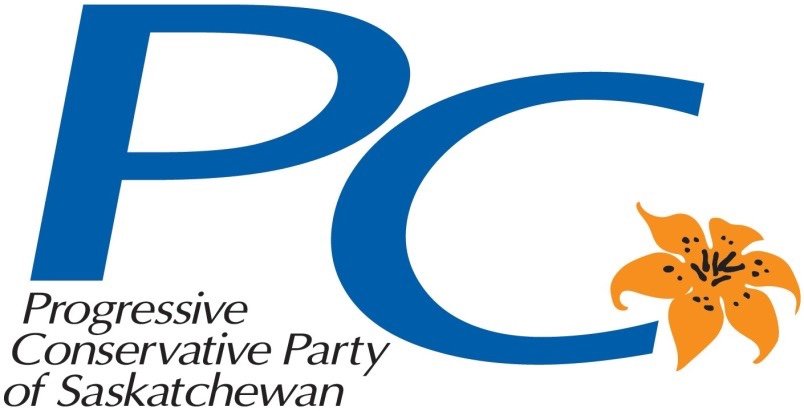Trever Ratti, PC Party of Saskatchewan candidate for the Melville – Saltcoats riding is passionate about politics. He stated, “I have always been interested in politics since high school social studies. Being on the opposite side of center from my family there is quite the heated discussion at family gatherings. I have been taught growing up, the importance of voting and opposition to government. I found that our family discussions on politics always ended with ‘oh well there is nothing we can do about it’. That does not sit well with me.”
Ratti figured there was something he could do about the helpless feeling, and in 2016 he ran as an independent candidate. Trever stated, “This was an interesting experience and quite the learning curve. I learned a few things about how difficult it was, for an average person to run for a position as a Legislator. I’m not in this for the pay or a lifetime career in politics. I’m here to stand in the legislature. I want to ask why my community and all the small towns in my riding are crumbling? We lose amenities, we have poor water and roads. The current government has been in place for many years in my riding; personally I don’t see the effort to correct these problems.
When the PC Party of Saskatchewan Candidate for the Melville – Saltcoats riding was asked about his goals for the constituents, he stated, “I hope to put pressure on the Legislature to invest in our riding, fix railroad crossings, roads and water supplies falling into disrepair. I will be a strong voice for balancing budgets, and for responsible spending of tax dollars. I will also work with my constituents to make sure their voices are heard loudly. I take pride in representing my extended community and do so in conservative manner, with honesty and transparency.”
On the topic of a political highlight, Trever Ratti said, “After the 2016 election, I was introduced to Mr. Ken Grey, Leader of the Progressive Conservative Party Of Saskatchewan. After a long conversation, I found we shared the same political views and vision for Saskatchewan on things like tax relief for small business, infrastructure upgrades to health care facilities.”
The highlights that he believes in most include, “Number one, scrapping the new West Trade Agreement, and favouring Saskatchewan companies for our infrastructure upgrades. Also, keeping Saskatchewan jobs and driving the Saskatchewan economy. Number two, getting P.S.T removed from used goods and insurance and P.S.T relief on anything that is being taxed by the federal carbon tax. Number three, Smart Boards being put into every classroom, along with a $500 classroom supply allowance for teachers.”
His fourth point revolved around healthcare. He is promoting “a new hospital in Prince Albert, not some knockoff insufficient upgrade. Also a plan to expand health care services billable to the Saskatchewan government. A fifth point is putting $50 million dollars into mental health care. Point six; working to stop seniors from having to divorce in long term care facilities.”
He added, “We in the Progressive Conservative Party Of Saskatchewan believe in balanced budgets, and the health and well-being of Saskatchewan, jobs, people and growth. We are a balanced Conservative option to the current government that I believe has let us down with COVID-19, deficits and Saskatchewan jobs in infrastructure upgrades.
Information shared by PCP Of Saskatchewan Candidate Melville-Saltcoats Trever Ratti
Other Progressive Conservative Party of Saskatchewan highlights include the timeline below:
Sept. 18: Party leader Ken Grey has said that a PC government would move to cancel the provincial state of emergency enacted on March 18 in response to the COVID-19 pandemic.
Oct. 3: The PC Party pledged to create 1,500 long-term care beds over the next five years and allocate an additional $50 million in support for mental health and addiction services. They also promised to build a new hospital in both Regina and Prince Albert. They did not indicate a cost for these projects.
Oct. 4: The PC Party would advocate for a second bridge to be built in Prince Albert and increase the pace of upgrades for northern and rural transportation routes. They did not indicate a cost for this project.
The party also pledged to implement a northern business tax credit for new businesses and expansion into northern communities, and also provide mental health services by building two hubs for northern First Nations and Metis communities.
Oct. 5: Ken Grey said that a PC Party government would remove the PST on construction and pull Saskatchewan out of the New West Trade Partnership Agreement, sourcing provincial projects to Saskatchewan companies first.
Oct. 6: The PC Party will introduce legislation for a property owner’s right to access and protect, and provide peace officer training for hospitals and other institutions to relieve police officers of duty in securing incarcerated patients.
Additionally, the party said it will propose anti-gang legislation and a community strategy to address gang activity, tougher sentences and a one-strike law for child sex and child abuse crimes.
The PC Party also supports firearm ownership for legal, law-abiding citizens.
Oct. 8: The PC Party said it will reinstate the Potash Production Credit, the Film Tax Credit and introduce a Manufacturer’s Tax Credit to encourage more locally-produced goods and jobs.
Oct. 10: The PC Party said it will increase government accountability in a number of ways, including reducing the legislative assembly to 58 seats, placing a ban on using caucus communications funds for party advertising, and eliminating corporate, union and out-of-province donations to parties.
The party would also introduce citizen-initiated legislation to allow residents to make decisions through referendum and begin holding specified days during legislative sitting for the public to directly address the cabinet.
Oct. 13: A PC Party government would work for more autonomy from the federal government by developing a provincial police force to replace the RCMP and allowing communities to set up their own local volunteer peace forces.
Article composed by: Gary Horseman
Local Journalism Initiative
